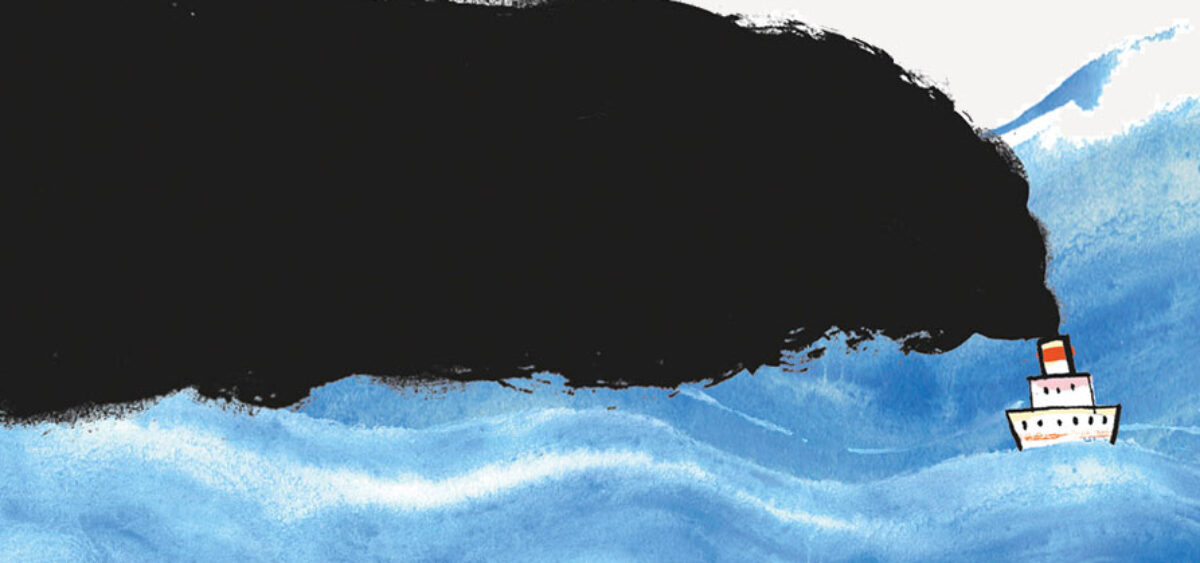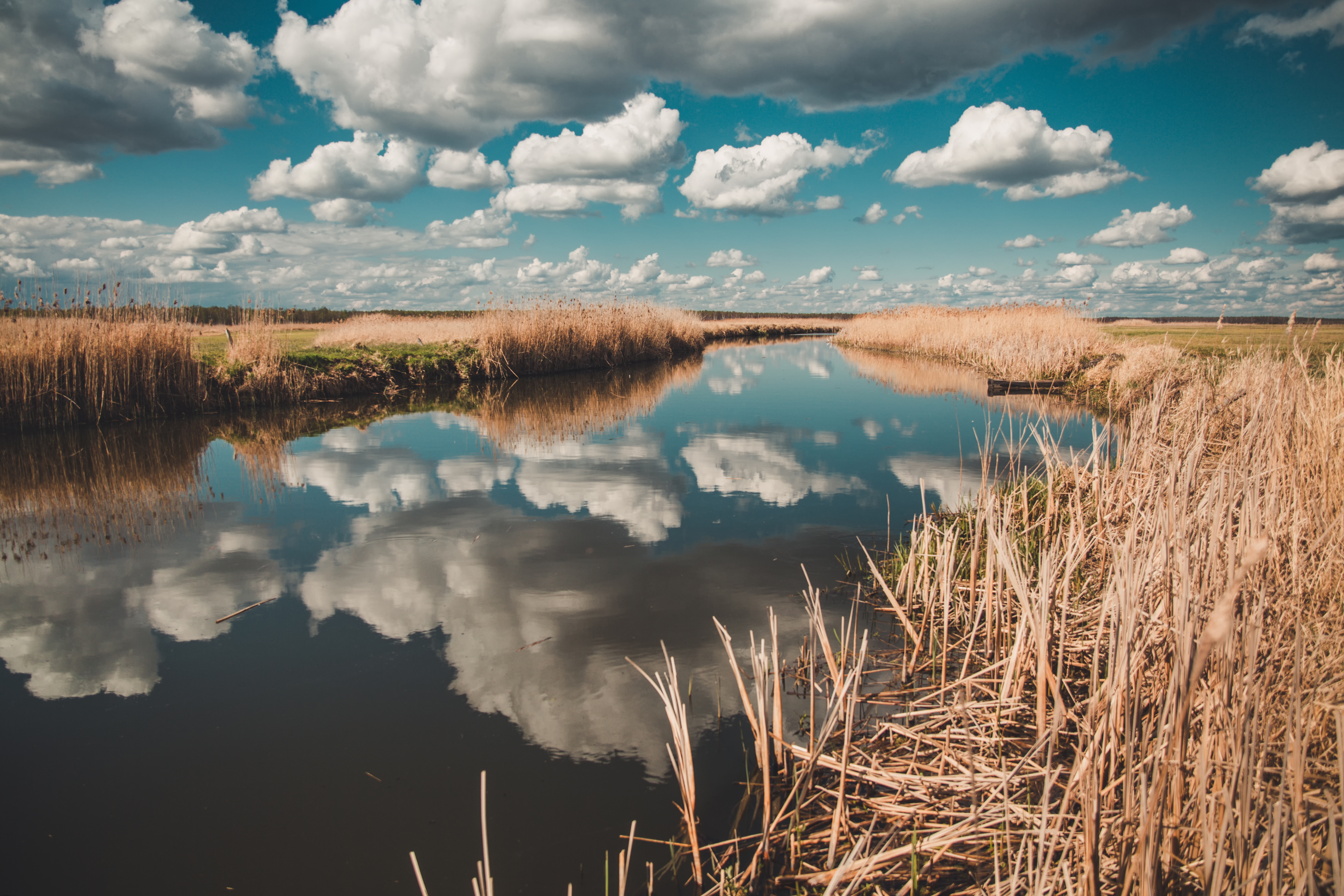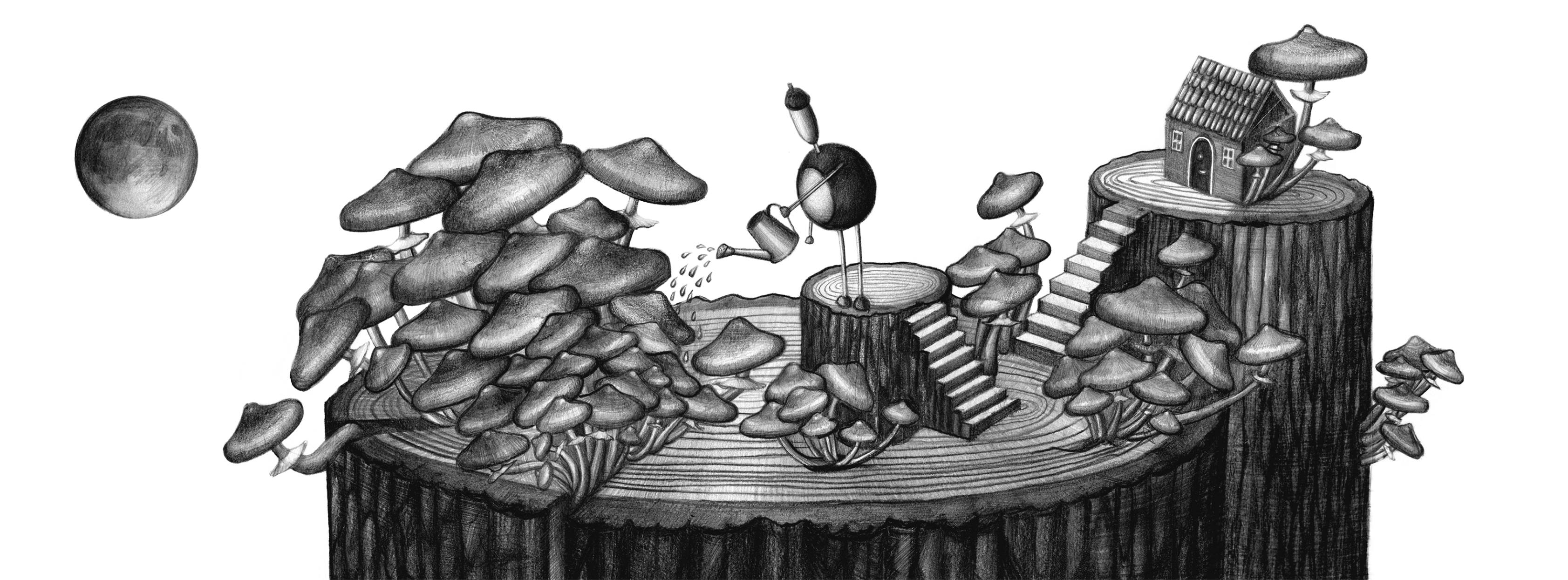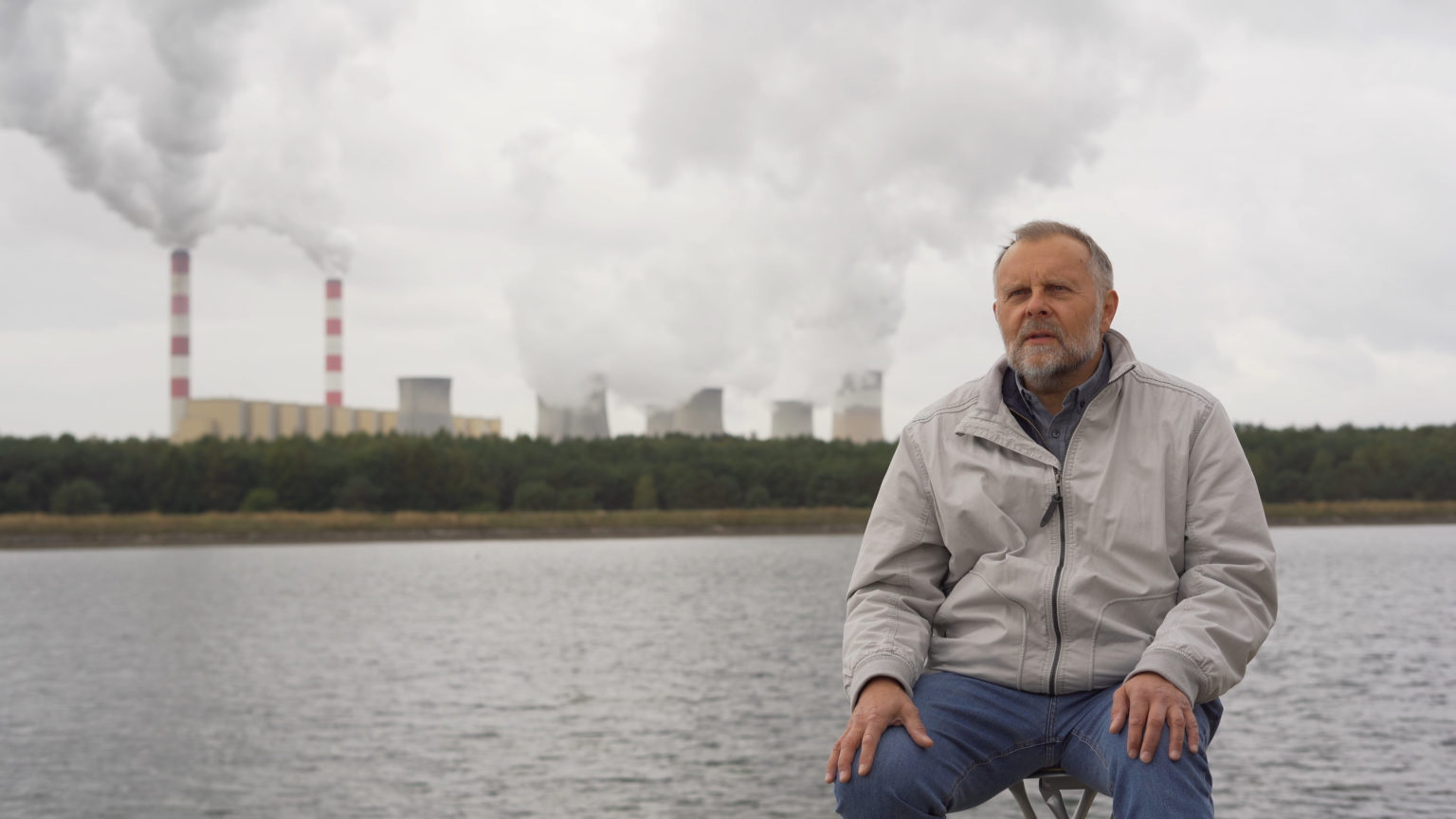
Marcin Popkiewicz, co-founder of the climate science portal Nauka o klimacie and co-author of the book of the same title, talks about ecotourism, Szymon Malinowski, the fight against disinformation, and a possible future world.
Łukasz Kaniewski: You’re a nuclear physicist turned activist. How did this happen?
Marcin Popkiewicz: I don’t consider myself an activist; this isn’t the right word. I’d describe myself as an analyst of megatrends, interested in popularizing science. It is true, however, that a great deal of what I do is about climate protection. How did it happen? Well, the movie The Great Global Warming Swindle played a significant part here. I got so annoyed with this horrendous manipulation that I thought: “You shamelessly brainwash people? Just you wait.” Then one thing led to another. The issues related to resources, energy, economy, environment and climate – and especially their entanglements – are so important and fascinating (and often terrifying) that once I started exploring them, I became more and more involved.

As both a nuclear physicist and climate change expert, could you share with us your opinion on nuclear power plants?
Our alternatives to fossil fuels are renewable energy sources (RES) and atomic energy. For many reasons, I consider the former a better choice, both for Poland and the entire world. The transition to renewables is cheaper and faster. Moving away from fossil fuels has become extremely urgent and beneficial for both our economy and labour market. I’d also add that creating an ‘energy mix’ of renewables and atomic is problematic. Once nuclear power plants are built, they should operate continuously. If they were to produce electricity only when it wasn’t windy or sunny – let’s say about 30% of the time – it would be three times more expensive. This is because a lion’s share of expenses are construction costs. The fuel is cheap, but the price of 1 GW of power from newly-built nuclear plants amounts to 30 billion złotys [around £6.1 billion]. I think that efficient nuclear plants in safe locations should keep operating, but building new ones, especially in those countries where it hasn’t been done before, is not the best idea.

The question of energy sources providing power for our civilization is very important, but the key issue is how much energy is in fact needed. Nowadays it is being horribly wasted. We could use a third or a quarter of what we’re using now and have a better life. Then we would need about three or four times fewer power sources, whether we speak about nuclear reactors, solar panels or wind farms.
In that case, should we be more focused on new ways of generating energy or on cost-cutting?
I find it fundamental to reduce energy consumption: in buildings, transportation, industry and agriculture. Of course, even if we radically improve energy efficiency through reducing the current demand by two-thirds or three-quarters, we will still need to generate a lot, mainly in the form of electricity. For that reason, we should improve both the efficiency and develop energy sources that are the least harmful to the environment.

Should we have some hope for controlled thermonuclear fusion?
Well, maybe someday… But not as part of the current climate crisis response. This technology is at an early stage of development. And I don’t mean demonstration or pilot projects, but research. Even if all goes well, it will become widely available a few decades from now at the earliest. In the meantime, to prevent climate catastrophe in compliance with the Paris Agreement, we should reduce our CO2 emissions by half in the next 10 years, and to zero in the following decades.
Do you think that the lifestyles of individual people can help combat global warming? Is it worth calculating one’s carbon footprint?
Everyone knows how much regular rubbish they produce: in Poland it’s about 400 kilos per person per year, which gives a daily average of about a kilo. But hardly anyone is aware of how much CO2 they emit into the atmosphere: 20 times as much. The carbon footprint of an average Polish citizen amounts to eight tons annually. But in contrast to rubbish, we can’t see carbon dioxide.
To reduce these emissions, individual effort is not enough: we need systemic changes. But when will such changes be effected? When a large part of society demands them from politicians. This won’t happen unless society proves committed to this issue and ready to modify their lifestyle. I reduce my carbon footprint. Otherwise I wouldn’t be able to look at myself in the mirror with a clear conscience. If I weren’t committed enough while calling on others to protect the climate, I’d be considered a hypocrite, and rightly so. Besides, today’s uncontrolled consumerism – at the expense of countless endangered species and our children facing a catastrophe – is incompatible with my ethical values. Also, a change of the individual mindset might lead to a change of the collective one. The example we set influences our family and friends. Together, we build society and we vote.

How has the fight against global warming influenced your lifestyle, for instance the way you spend vacation?
Sadly, in this world, with its infrastructure, it is hard not to cause any harm at all. The electricity in our houses comes from coal. Our vehicles are powered by oil. Plastic is everywhere. We can try, however, to do less harm. As for vacation, I don’t fly because I find it unethical. And I don’t have a car. But I don’t spend vacation in the old barrel behind my house. When we travel with my family to more faraway destinations, for instance to Croatia or to the Alps to ski, we practice slow travel, which means that we first take a train to Vienna and stay there overnight, do some sightseeing, and then we stop again once or twice. I learned to enjoy this form of travelling: it allows us to savour our journey and the places we visit along the way. This doesn’t happen when you ‘teleport’ from Warsaw to an all-inclusive hotel somewhere in the world.

What legal and systemic changes could be introduced instantly to help prevent the climate catastrophe?
Today we treat the atmosphere as if it were a gutter for our chimneys and exhaust pipes. First, we should follow the principle that the one who pollutes, pays. Personally, I’m in favour of a dividend on coal. This means that fossil fuels are taxed directly ‘at the source’: coal at the mine and gas at the port. Then, this tax money should be distributed equally among citizens as monthly transfers. Second, we could introduce changes in regulations to raise energy efficiency standards for newly-completed buildings, or to extend company liability for products launched into the market. Third, we could implement energy-efficiency-oriented infrastructure programmes (which include systemic solutions, like public transportation modelled after Copenhagen) and clean energy. Last but not least, we should stop looking at the GDP growth rate as an indicator of progress, development and the quality of life.

How do you envision the world a few decades from now, assuming that we manage to prevent the catastrophe?
Unfortunately, we’ve been postponing climate action for far too long, so the future won’t be bright. The real question is how bad it will be. For example, the sea-level will rise by several metres and the flooding of Gdańsk’s old town is not so much a question of if but when. But let’s assume that we pull it together, give up the ‘come what may’ approach, and adopt the solutions mentioned above. In such a world, houses don’t need heating and smog doesn’t exist. In our green cities, there are no traffic jams, road noise or accidents. We are healthier and eat less meat. We manufacture long-lasting products that are easy to repair and recycle. Natural forests, marshes and oceans are protected. Our planet is recovering. We abandon the logic of cancer cells that identify growth with success, prioritizing instead our development and quality of life. We move away from the idea that ‘greed is good’ and ‘after us, the flood’. We responsibly manage risks, including climate change and pandemic risks. Our life is safer, healthier and more ethical.

How did you meet Professor Szymon Malinowski and how did the Nauka o klimacie collective start?
I’ve been committed to climate education for a while, deconstructing various myths and lies. I have also written and translated articles. I wasn’t the only one: many people did the same thing. I ‘spotted’ Professor Szymon Malinowski, an atmospheric physicist, on the internet, and attended his lecture at the Faculty of Physics, University of Warsaw. I decided to approach him and ask if he would be interested in a joint collaboration. This turned out to be a great move – Szymon combines vast knowledge and exquisite teaching skills with a passion for activism and a commitment to making the world a better place. We quickly established a rapport and agreed that we need in Poland a professional website focused on climate education, with high quality texts that include bibliographies and are authored by experts.

Szymon contacted other climate scientists he knew, offering them to join our board. Thanks to him, the board comprises the best Polish climate experts, who help us prepare materials and ensure their quality. Aleksandra Kardaś – Szymon’s PhD student and an excellent educator – soon joined our editorial team. The three of us co-authored a textbook titled Nauka o Klimacie [Climate Science]. Our collective has been growing and we’re now running trainings for educators as part of Akademia Nauki o Klimacie [Climate Science Academy], and are developing many other projects. We act because the issue is important and urgent.
What do you think about the role and significance of climate protests and youth activism?
The direction we’ve taken so far leads to climate catastrophe, and awareness of this problem is growing. Young people feel especially concerned since they are the ones who will pay the price for the short-sightedness and egotism of their parents’ generation. It’s perfectly understandable that they’re rebelling against it and taking to the streets. I’d be worried if they passively accepted what is happening. Each major movement for change – whether abolitionist, women’s rights or anti-communist – involved protesting and voicing demands for changes to the status quo. Climate marches prove that people oppose the obedient march towards self-destruction. Protests bring people together, build a social movement, create a platform for the exchange of ideas, and help establish a common goal. They also attract media interest and draw the attention of politicians. They’re absolutely crucial. I can’t think of any single significant change in the history of the world that has been effected without this form of activism.

For more information (in Polish): www.naukaoklimacie.pl
We encourage you to watch Jonathan Ramsey’s film “It’s Okay to Panic”. The film is available on YouTube for free.

Translated from the Polish by Joanna Mąkowska









